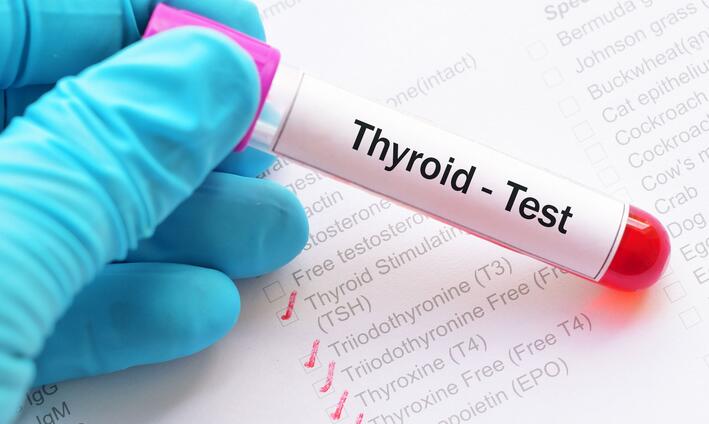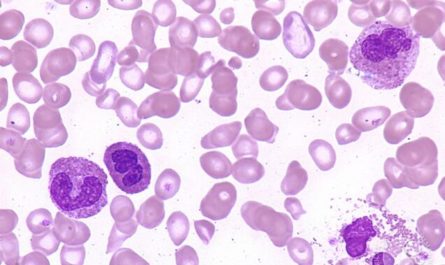The thyroid gland plays a crucial role in maintaining our overall health and well-being. One of the key hormones involved in regulating thyroid function is Thyroid Stimulating Hormone (TSH). The TSH test is a common diagnostic tool used to measure TSH levels in the blood, providing valuable insights into thyroid health. In this comprehensive guide, we will explore the meaning of TSH levels, including normal, high, and low ranges, and their implications for your health.
What is TSH?
Thyroid Stimulating Hormone (TSH) is produced by the pituitary gland, a small organ located at the base of the brain. TSH plays a vital role in regulating the production of thyroid hormones, including triiodothyronine (T3) and thyroxine (T4). TSH stimulates the thyroid gland to release these hormones, which are involved in controlling the body’s metabolism, growth, and development.
When the body requires more thyroid hormones, the pituitary gland releases TSH into the bloodstream. TSH then binds to specific receptors on the thyroid gland, signaling it to produce and release more T3 and T4 hormones. Conversely, when the body has sufficient thyroid hormones, TSH production decreases, providing a feedback mechanism to maintain hormonal balance.

What is a TSH Test?
A TSH test, also known as a Thyroid Stimulating Hormone test, measures the levels of TSH in the blood. It is a simple and effective way to evaluate thyroid function and assess whether the thyroid gland is producing an adequate amount of hormones.
When is it Prescribed?
A healthcare provider may recommend a TSH test if you exhibit symptoms of an underactive or overactive thyroid, such as unexplained weight changes, fatigue, hair loss, or mood swings. Additionally, individuals with a family history of thyroid disorders or those who have undergone thyroid treatment may undergo regular TSH testing for monitoring purposes.
How is the TSH Test Performed?
The TSH test involves a simple blood draw, usually from a vein in the arm. The blood sample is then sent to a laboratory for analysis. It is essential to follow any pre-test instructions provided by your healthcare provider, such as fasting requirements or medication restrictions, to ensure accurate results.
Interpreting TSH Test Results
TSH test results are typically reported in milli-international units per liter (mIU/L). The interpretation of TSH levels depends on the specific laboratory’s reference range. However, generally, TSH levels between 0.4 and 4.0 mIU/L are considered within the normal range for most adults.
What are Normal TSH Levels?
The normal range for TSH levels may vary depending on factors such as age, gender, and pregnancy. For adults, TSH levels between 0.4 and 4.0 mIU/L are considered normal. However, it is important to note that different laboratories may have slightly different reference ranges, so it is best to consult with your healthcare provider for an accurate interpretation.
Factors Influencing TSH Levels
Several factors can influence TSH levels, leading to variations in test results. These factors include medications, such as corticosteroids or certain psychiatric drugs, as well as medical conditions like obesity, stress, and pregnancy. It is crucial to consider these factors when interpreting TSH test results, and your healthcare provider will take them into account during diagnosis.
High TSH Levels: Causes and Implications
High TSH levels, known as hyperthyroidism, generally indicate an underactive thyroid gland. TSH levels above the upper limit of the normal range suggest that the pituitary gland is producing more TSH to compensate for insufficient thyroid hormone production.
Possible Health Conditions Linked to High TSH
High TSH levels are commonly associated with hypothyroidism, a condition in which the thyroid gland does not produce enough thyroid hormones. Hypothyroidism can result from autoimmune diseases like Hashimoto’s thyroiditis, thyroid surgery, or iodine deficiency. It is important to diagnose and treat hypothyroidism promptly to prevent complications and improve overall health.
Symptoms of High TSH Levels
Individuals with high TSH levels may experience symptoms such as fatigue, weight gain, sensitivity to cold, dry skin, and constipation. These symptoms are caused by the body’s slowed metabolic rate due to insufficient thyroid hormone levels.
Treatment Options for High TSH Levels
Treating high TSH levels typically involves hormone replacement therapy using synthetic thyroid hormones. The most common medication prescribed is levothyroxine, which helps restore normal levels of thyroid hormones in the body. Regular monitoring and dosage adjustments are necessary to ensure optimal thyroid function.
Managing High TSH Levels Naturally
In addition to medication, certain lifestyle changes can help manage high TSH levels. These include adopting a healthy diet rich in iodine, selenium, and other nutrients that support thyroid function. Regular exercise, stress management techniques, and adequate sleep can also contribute to overall thyroid health.
Low TSH Levels: Understanding the Causes
Low TSH levels, known as hyperthyroidism, indicate an overactive thyroid gland. TSH levels below the lower limit of the normal range suggest that the pituitary gland is producing less TSH due to excessive thyroid hormone production.
Potential Health Issues Associated with Low TSH
Low TSH levels are commonly associated with hyperthyroidism, a condition in which the thyroid gland produces an excessive amount of thyroid hormones. Hyperthyroidism can be caused by conditions such as Graves’ disease, toxic nodular goiter, or thyroid inflammation. Prompt diagnosis and treatment are essential to prevent complications and restore thyroid function.
Symptoms to Watch for with Low TSH Levels
Individuals with low TSH levels may experience symptoms such as weight loss, increased appetite, rapid heartbeat, anxiety, and heat intolerance. These symptoms occur due to the body’s accelerated metabolic rate resulting from excessive thyroid hormone levels.
Treatment Approaches for Low TSH Levels
Treating low TSH levels aims to restore normal thyroid function and may involve medication to suppress thyroid hormone production, radioactive iodine therapy, or, in some cases, thyroid surgery. The chosen treatment depends on the underlying cause and the individual’s specific condition.
Managing Low TSH Levels Naturally
In addition to medical treatments, lifestyle modifications can help manage low TSH levels. These include stress reduction techniques, regular exercise, and a balanced diet rich in nutrients that support thyroid health. It is important to work closely with your healthcare provider to determine the most appropriate treatment plan for your specific situation.
The Importance of Normal TSH Levels
Maintaining normal TSH levels is vital for the balance of thyroid hormones in the body. Balancing TSH levels ensures that the thyroid gland produces an appropriate amount of thyroid hormones to support cellular metabolism and overall health.
How Normal TSH Levels Contribute to Overall Health
Normal TSH levels contribute to various aspects of overall health, including metabolism, energy levels, mood regulation, cardiovascular health, and reproductive function. When TSH levels are within the optimal range, these bodily functions can operate efficiently.
The Impact of TSH on Other Bodily Systems
TSH levels not only affect the thyroid gland but also have an impact on other bodily systems. Thyroid hormones play a vital role in growth and development, brain function, bone health, and the immune system. Therefore, maintaining normal TSH levels is crucial for the proper functioning of these systems.
How to Manage Abnormal TSH Levels
Lifestyle Changes and Dietary Considerations
While medication is often necessary, certain lifestyle changes and dietary considerations can support thyroid health. These include maintaining a balanced diet rich in iodine, selenium, and other essential nutrients, managing stress levels, getting regular exercise, and ensuring adequate sleep.
Medication and Hormone Therapy
For individuals with persistent abnormal TSH levels, medication and hormone therapy may be necessary. Synthetic thyroid hormones, such as levothyroxine, can help restore hormonal balance and alleviate symptoms associated with hypothyroidism. It is important to follow your healthcare provider’s guidance and undergo regular monitoring to ensure optimal thyroid function.
Regular Monitoring and Follow-Up Care
Individuals with abnormal TSH levels may require regular monitoring to assess treatment effectiveness, adjust medication dosages if necessary, and ensure ongoing thyroid health. Regular follow-up care with your healthcare provider is essential to track progress and make any necessary adjustments to your treatment plan.
FAQs
Can You Have Symptoms of a Thyroid Disorder with Normal TSH Levels?
Yes, it is possible to experience symptoms of a thyroid disorder even with normal TSH levels. TSH levels provide valuable information, but they are not the sole indicator of thyroid health. Other thyroid hormones, such as T3 and T4, as well as individual variations in hormone sensitivity, can contribute to the presence of symptoms.
How Often Should You Get Your TSH Levels Checked?
The frequency of TSH testing depends on various factors, including your medical history, symptoms, and treatment plan. For individuals with diagnosed thyroid disorders, regular monitoring every six to twelve months may be necessary. Consult with your healthcare provider to determine the appropriate testing schedule for your specific situation.
Can TSH Levels Fluctuate Over Time?
Yes, TSH levels can fluctuate naturally throughout the day and may show slight variations in different testing instances. However, significant fluctuations outside the normal range may indicate underlying thyroid dysfunction. It is important to work closely with your healthcare provider to monitor any significant changes in TSH levels.
Conclusion
The TSH test serves as a valuable tool in assessing thyroid function and providing insights into overall health. Understanding the meaning of TSH levels, including normal, high, and low ranges, can help individuals and healthcare providers identify potential thyroid disorders and implement appropriate treatment strategies. By maintaining optimal TSH levels and seeking regular medical guidance, individuals can support their thyroid health and overall well-being.
Additional Resources
- American Thyroid Association
- National Institute of Diabetes and Digestive and Kidney Diseases – Thyroid Disease
- Mayo Clinic – Thyroid Disease
- Thyroid Foundation of America






